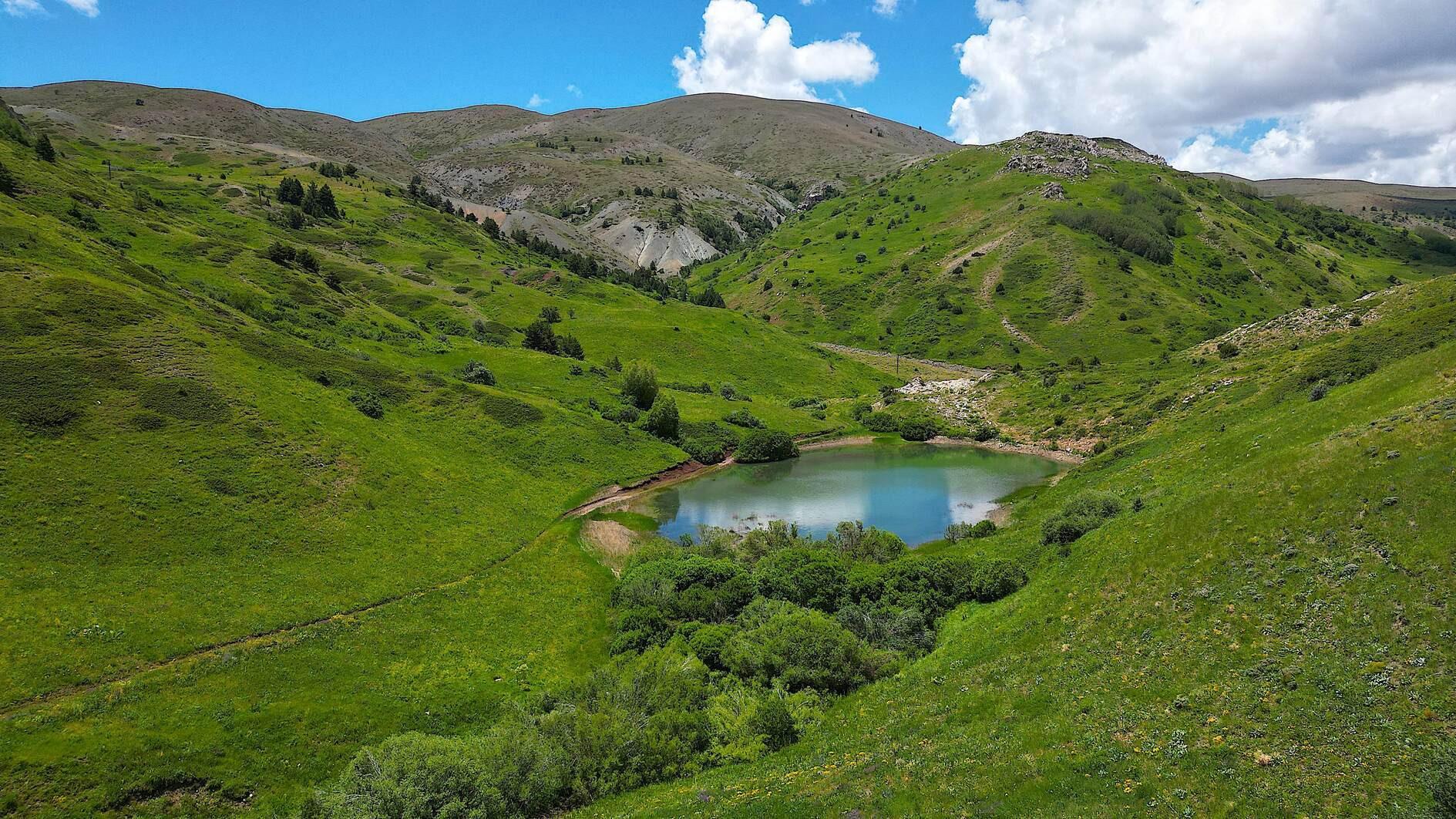
Located between the provinces Bayburt and Erzurum in Türkiye's northeast, Kop Mountain is a natural gem renowned for its rich vegetation, endemic species and breathtaking beauty.
Reaching an altitude of 2,918 meters, the majestic peak offers a stark contrast between its snow-clad winter visage and the vibrant plant life that emerges in the summer.
The diverse landscapes of Kop Mountain, featuring valleys, slopes and lakes, are a haven for history lovers and nature enthusiasts alike.
The region, a battleground during the Ottoman-Russian War, was declared a national park by the country’s Directorate of Nature Conservation and National Parks in 2016.
Kop Mountain Defense Historical National Park is located within the borders of Bayburt and Erzurum provinces of Türkiye.
The area is the point where the battles known as the Kop Defense took place against the Russians during World War I. The recreation of the area where the Ottomans were victorious with the Third Army was also made considering this historical value.
During the winter months, it is difficult to keep the pass open to traffic due to snow and fog in harsh weather conditions.
The Kop Mountain Tunnel, built to the west of the pass, also provides a shortcut through the Kop Pass. There is a monument of the Kop Mountain Defense Historical National Park on the summit of the mountain. It was built in 1963 by Bayburt Garrison Commander Bedrettin Demirel.
Professor Abdurrahman Sefalı, a biodiversity researcher at Bayburt University, underscores the mountain’s ecological significance.
“Kop Mountain is a gateway connecting Eastern Anatolia and the Black Sea regions. It is crucial for plant diversity and endemic species,” he explained.
The continuous evolution of life forms since geological times has made Kop Mountain home to approximately 1,000 plant species, with 150 endemic to Türkiye.
Among these is "Stachys bayburtensis," commonly known as Çarşak tea, a sage variety that thrives in the challenging mountain terrain. "It blooms on the difficult slopes of the mountains, in the stony places," Sefalı said.
“Kop Pass attracts researchers from across Türkiye,” Sefalı noted. “The unique plant diversity here enriches scientific studies. This richness also lures nature enthusiasts, keeping tourism vibrant. People can come here and easily observe plants and nature.”
The naturally formed lakes at high altitudes add to the region’s allure, enhancing its picturesque scenery.
Sefalı emphasized that the specialized vegetation of Kop Mountain fosters an increased number and diversity of insects and birds, making it one of Türkiye’s richest biodiversity hotspots, especially noted for its butterfly diversity.
"If plant diversity is specialized in a place, if there are many endemic plants, butterflies, then insects and birds that feed on them also increase in number and become specialized. Bayburt is also one of the richest points with an important butterfly diversity when we look at the Kop Mountain Pass."
The mountain is a sanctuary for 134 butterfly species, many of which are rare.